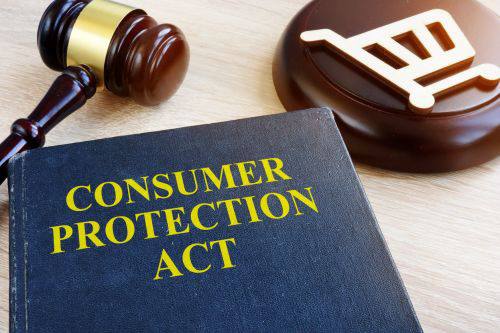
Consumer Protection Laws: Know Your Rights
Introduction:
As a consumer, it is important to be aware of your rights and understand the laws that protect you. Consumer protection laws are designed to safeguard individuals from unfair business practices, false advertising, and deceptive products. In this article, we will explore the key aspects of consumer protection laws, empowering you to make informed decisions, and ensuring your rights are upheld.
1. Understanding Consumer Protection Laws:
Consumer protection laws are regulations put in place by government agencies to promote fair trade and protect consumers from fraudulent activities. These laws vary from country to country, but they generally aim to ensure product safety, truthful advertising, and fair business practices. By enforcing these laws, governments strive to maintain consumer confidence and overall economic stability.
2. Product Safety Regulations:
Consumer protection laws emphasize product safety to prevent harm to consumers. Manufacturers and sellers are required to meet specific safety standards outlined by regulatory bodies. These standards cover a wide range of products, from electrical appliances to children’s toys. These regulations ensure that products are free from defects or potential hazards that may pose risks to consumers’ health and well-being.
3. Truthful Advertising:
Consumer protection laws prohibit false, misleading, or deceptive advertising practices. Advertisements must provide accurate, reliable, and non-misleading information about products or services. Any claims made in advertisements must be substantiated and supported by evidence. This ensures that consumers are not misled into purchasing products or services based on false promises or exaggerated claims.
4. Protection Against Unfair Business Practices:
Consumer protection laws also safeguard consumers from unfair business practices, such as hidden fees, misleading contracts, or aggressive sales tactics. These laws enforce fair and transparent business dealings, ensuring that consumers have access to all relevant information and can make informed decisions. Additionally, these laws protect consumers from being coerced into purchasing products or services they do not need or want.
5. Consumer Privacy Protection:
In an increasingly digital world, consumer privacy protection has become a crucial aspect of consumer protection laws. These laws govern how companies collect, store, and use individuals’ personal information. They compel businesses to adopt stringent data protection measures and obtain consent before using consumer data for marketing purposes. These regulations aim to safeguard consumers’ privacy and prevent unauthorized use of personal information.
6. Steps to Take When Consumer Rights are Violated:
If you believe your consumer rights have been violated, it is crucial to take action to rectify the situation. Begin by gathering all relevant documentation, such as receipts, contracts, or correspondence. Contact the seller or service provider to address your concerns and attempt to resolve the issue amicably. If this proves unsuccessful, consider filing a complaint with the relevant consumer protection agency or seeking legal advice to explore your options further.
7. Consumer Protection in E-commerce:
With the rise of online shopping, consumer protection laws have adapted to address the unique challenges presented by e-commerce. These laws establish guidelines for online transactions, including payment security, information disclosure, and dispute resolution mechanisms. It is essential for online consumers to familiarize themselves with these laws to ensure a safe and satisfactory shopping experience.
8. Consumer Protection Agencies:
To effectively enforce consumer protection laws, governments establish dedicated agencies or departments responsible for handling consumer complaints and taking legal action against violators. These agencies play a crucial role in educating consumers about their rights, investigating complaints, and enforcing penalties against businesses that breach consumer protection laws.
9. Consumer Empowerment through Education:
One of the most powerful tools consumers have is education. By staying informed about consumer protection laws, consumers can protect themselves from fraudulent practices and make informed decisions. It is recommended to research consumer protection laws specific to your country or region and stay updated on any changes or new regulations that may impact your rights.
10. Conclusion:
Consumer protection laws are vital for safeguarding consumer interests and promoting fair trade. Understanding these laws empowers individuals to assert their rights and make informed choices. By familiarizing yourself with product safety regulations, truthful advertising practices, and protection against unfair business practices, you can navigate the consumer landscape with confidence. Remember, your rights as a consumer are worth protecting, and knowledge is the key to ensuring a fair and safe marketplace for all.
